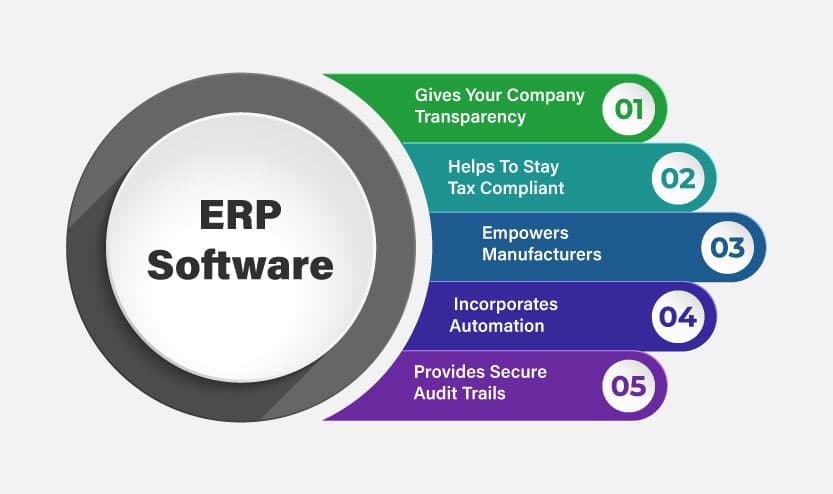
Overview –
To produce and market products, manufacturers need to comply with industry-specific technical, legal, and corporate regulations.
Adhering to business-relevant laws proves to be the main key to a company’s success.
But failing to achieve this results in hefty penalties that might ruin the corporate reputation and financial performance of the organization.
A steady rise in the trade of counterfeit and pirated goods has led to growing concern against safety threats among consumers.
In such situations, ensuring product safety is of vital importance to protect humans, animals, and the environment.
This is why the risk of non-compliance has become a matter of concern in the past few years, particularly for process manufacturers.
What is Compliance Management Solution-
Irrespective of the industry type, with the increase in the number of manufacturing laws, the regulatory compliance rules have become more prominent.
The only difference is that they are modified according to the disparate aspects of businesses such as F&B, Personal Care, Automotive, Pharma, etc.
But, the goal of achieving compliance happens to be a daunting task for the process manufacturers because of various regulatory bodies such as Food and Drug Administration (FDA), Environmental Protection Agency (EPA), Occupational Safety and Health Administration (OSHA), etc.
Responsibilities of Compliance Management System–
- Ensuring businesses adhere to industry-specific regulations & controls
- Providing a real-time view to identify major non-compliance risks
- Establishing a culture of addressing & avoiding these risks
- Tracking & incorporating the new updates in the regulatory laws
- Providing dedicated management of compliance documents
Regulatory Compliance Across Industries-
Whether it be a pharma company, a food manufacturing industry, a chemical manufacturing industry, or any other, in every manufacturing sector even a small error or contamination could prove to be dangerous and life-threatening.
Hence, every industry has to deal with its specific set of requirements to manage risks and prevent the company from getting caught in any lawsuits.
Let’s move further with a brief look at the various industry-wise regulatory compliance:
Food Manufacturing Industry-
Besides adhering to ISO standards, companies operating internationally need to meet FDA, USDA, GFSA, and GMP requirements for food safety management.
Moreover, apart from cleanliness, having KOSHER and HALAL certifications is a must for food manufacturers.
Also, HACCP, Nutritional labels, supplement fact sheets, allergen labeling, etc. are other compliance requirements in the food industry.
Pharmaceutical Manufacturing Industry-
Ensuring FDA compliance— specifically FDA 21 CFR part 11, along with achieving quality-assuring CGMP norms is a must for pharma manufacturers.
Chemical Industry-
For process manufacturing industries like Cosmetics, Chemicals, Paints, and Life Sciences, where safety is the primary concern, staying compliant with GHS, DoT, OSHA, ISO, EPA, REACH, INCI, GFSI, SARA along with meeting CGMP requirements, maintaining VOC regulations and generating country or region-specific SDS sheets are the prerequisites for manufacturers.
How ERP does the job seamlessly-
As discussed above, businesses that fail to follow the industry rules or violate them wittingly or unwittingly have to face hefty penalties and legal implications and that could paralyze the whole functioning of the organization.
Contrary to this, incorporating compliance management software like ERP could prove to be a true difference-maker for the manufacturers.
An integrated and all-encompassing solution that helps business owners reduce risks, track, monitor, and dissolve defective activities along with staying compliant with the regulatory norms & legal requirements.
Apart from fulfilling the above-mentioned prerequisites of every industry, an ERP software:

Gives Your Company Transparency-
Investing in ERP offers visibility, security, and traceability of the whole functioning. Moreover, it keeps track of sensitive operations and documents SOPs to enhance efficiency and standardization in operations— enabling the best way for manufacturers to stay compliant.
Helps To Stay Tax Compliant-
An efficient ERP offers robust tax-return functionality that helps to manage taxes and company’s withholdings—facilitating staying tax compliant.
Empowers Manufacturers-
With its unmatchable capabilities, an ERP centralizes & optimizes all the business operations, while eliminating manual work.
This also enables easy data flow within the organization— offering visibility and easy access to a single source of truth.
Moreover, its Bi-directional lot traceability feature allows for tracking suspected ingredients, intermediates, or finished goods and producing recall letters for the same.
Incorporates Automation-
Automating repetitive and laborious tasks not only eliminates errors but allows the team to have a triple check of the compliance requirements.
Provides Secure Audit Trails-
A good ERP is enabled with the robust “Audit Trail” capabilities, which focuses on high-risk areas in an enterprise and reduces errors, fraudulent activities, and unauthorized system access along with enhancing internal controls.
It also facilitates different types of audits like compliance, operational, financial, and IT— helping achieve SOX compliance easily.
Printing Safety Labels-
As an integral part of the process manufacturing industries— like chemical, cosmetics, and paint, an ERP software precisely generates GHS and SDS labels to provide comprehensive information handling product.
On the other hand— as a result of mandatory labeling legislation for food, pharma, and nutraceutical industries, it automatically generates supplement fact labels, ingredients statements, allergen listings, and other FDA mandated labels.
Tracking Non-Conformance & CAPA-
Ensuring a product’s quality requires identifying non-conforming materials or processes.
An ERP with its robust non-conformance tracking capability initiates the necessary action of identifying and documenting the non-conformities for audit and future reference purposes.
Further, the effective CAPA system of ERP efficiently resolves the issue on an immediate basis by determining its root cause.
Supplier Management-
A mandate now in the pharma & food industry and slowly progressing in other manufacturing industries, Supplier management can be efficiently met using an ERP.
It holds the supplier information and certifications ensuring the quality of the goods procured and speeding audits.
ERP even sends alerts when a vendor certification is nearing expiry giving manufacturers peace of mind.
Final Word-
Meeting customer-specific requirements, as well as industry-specific regulatory mandates, is of great importance but, many process manufacturers fail in doing so.
The reason is the lack of awareness to invest in a dedicated resource for compliance obligations.
Are you facing trouble staying compliant with the regulatory standards? With BatchMaster ERP you will be capable of manufacturing products fulfilling every industry-specific compliance requirement efficiently.
Get in touch with our team of experts, as they will be happy to assist you with the same.





